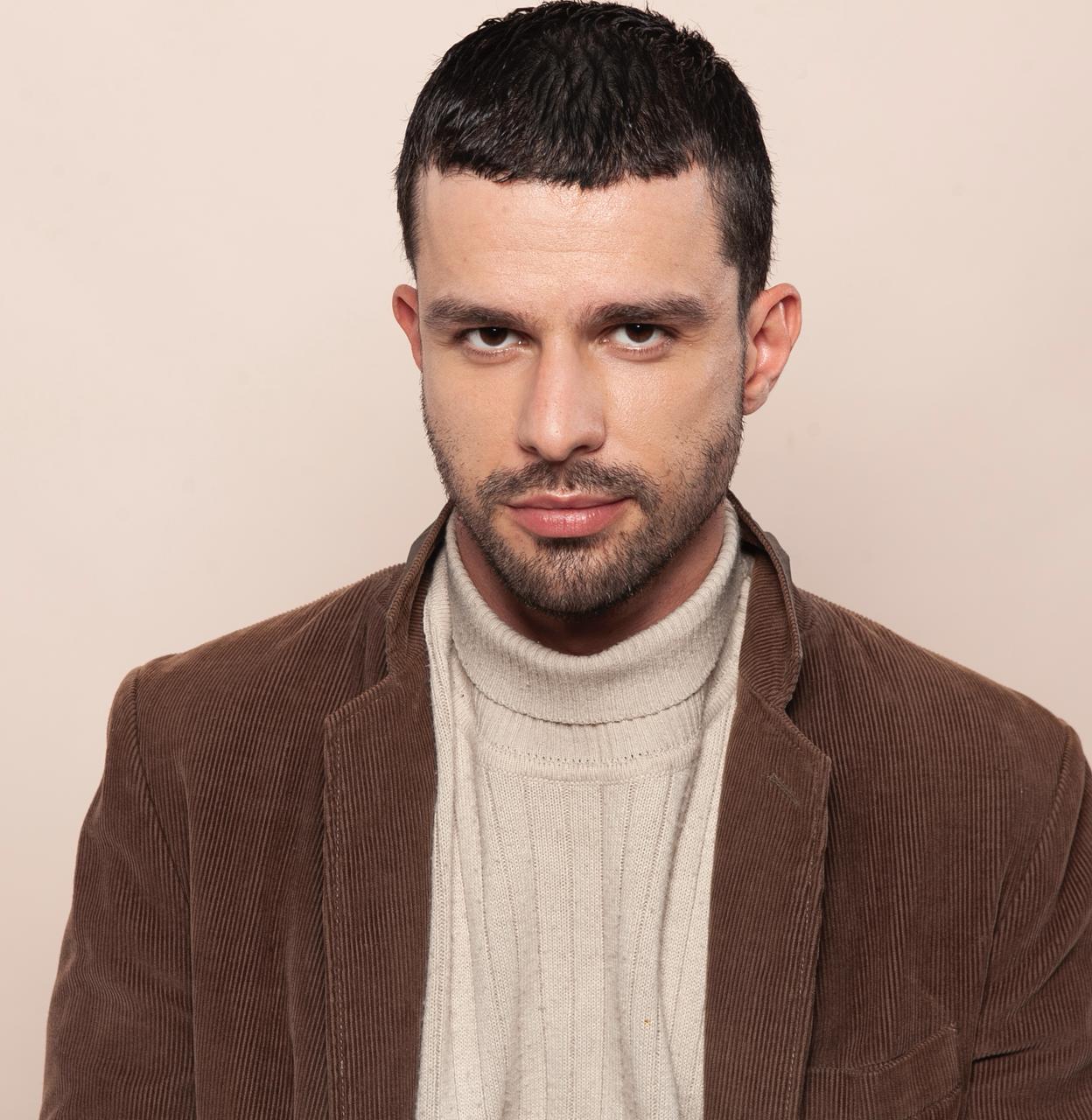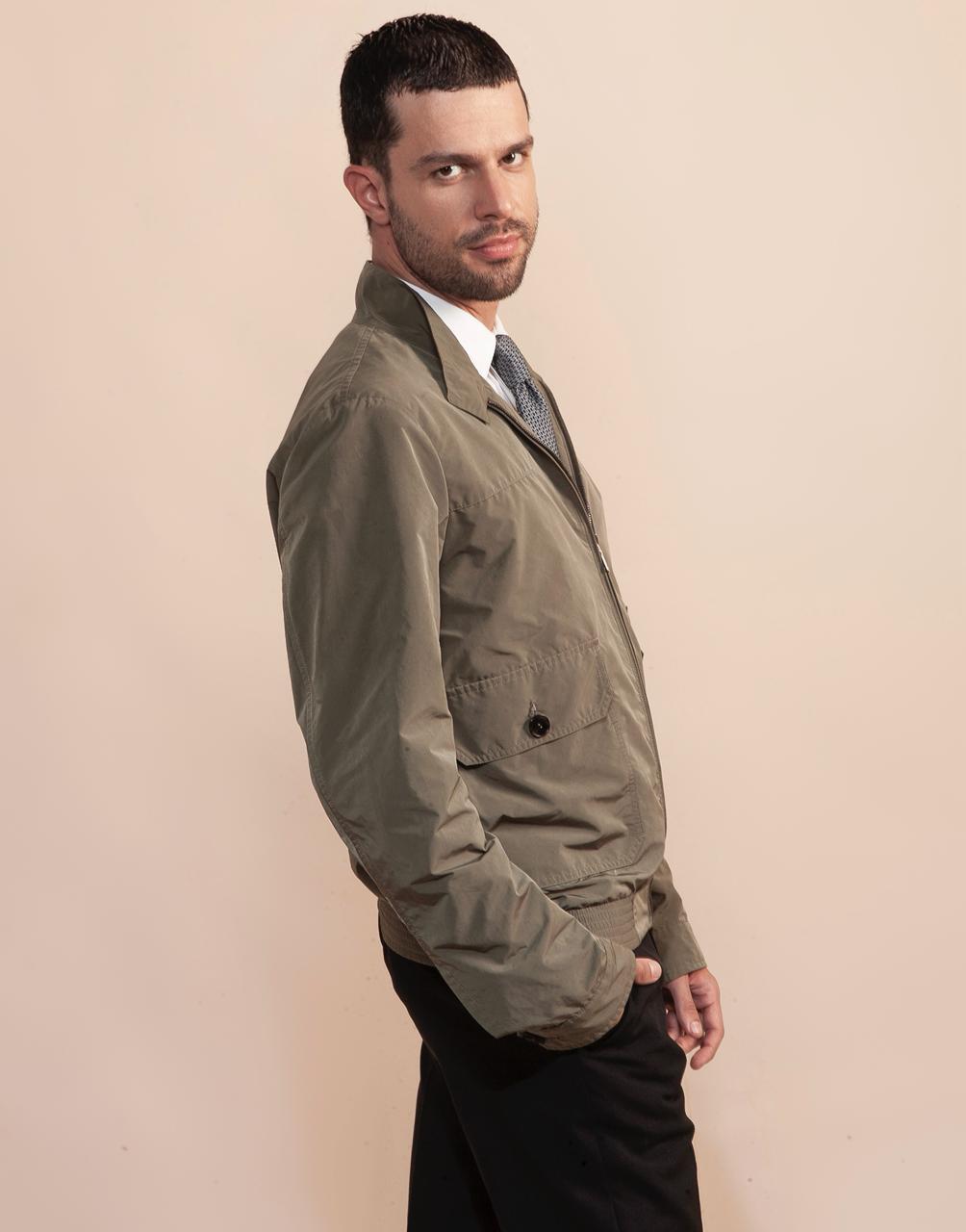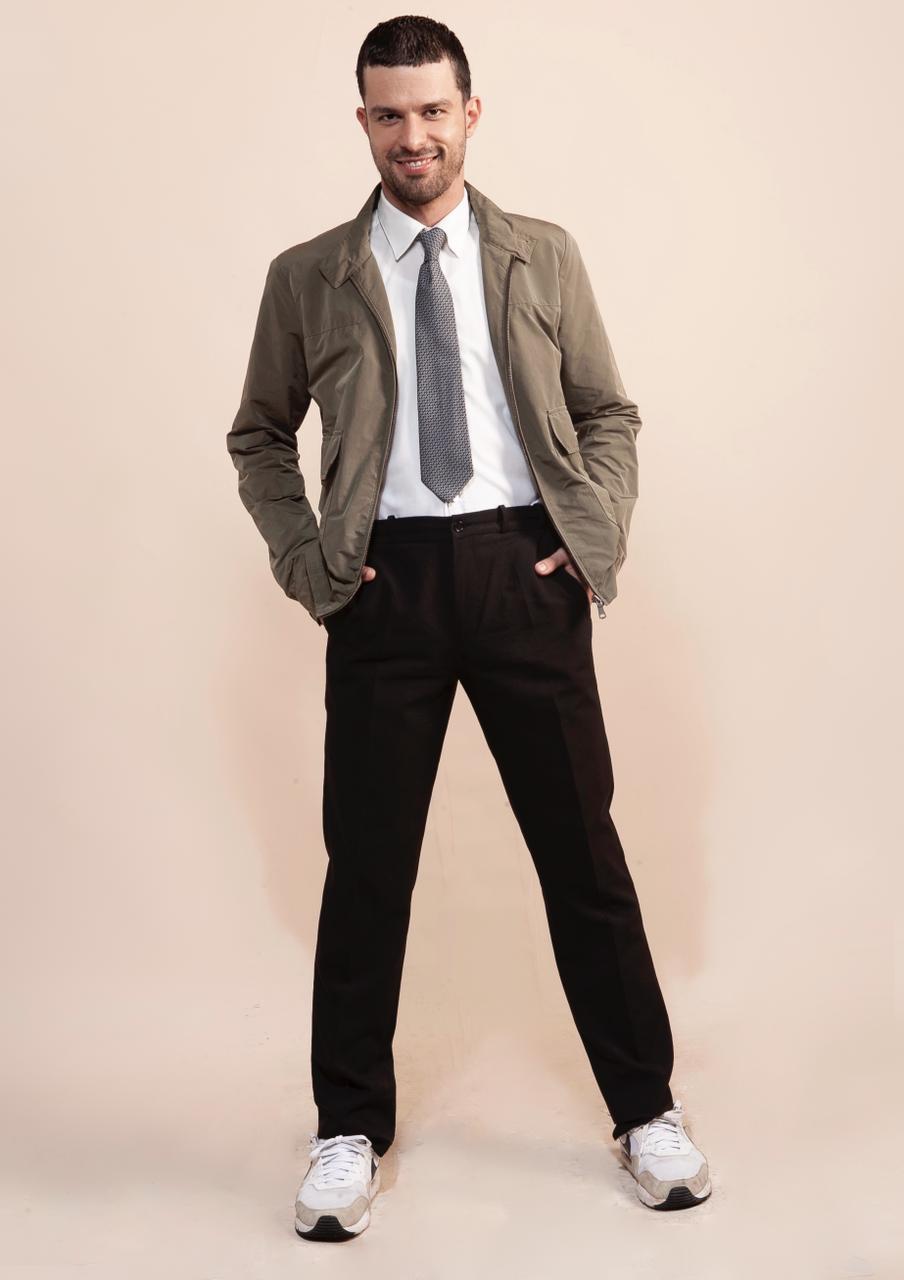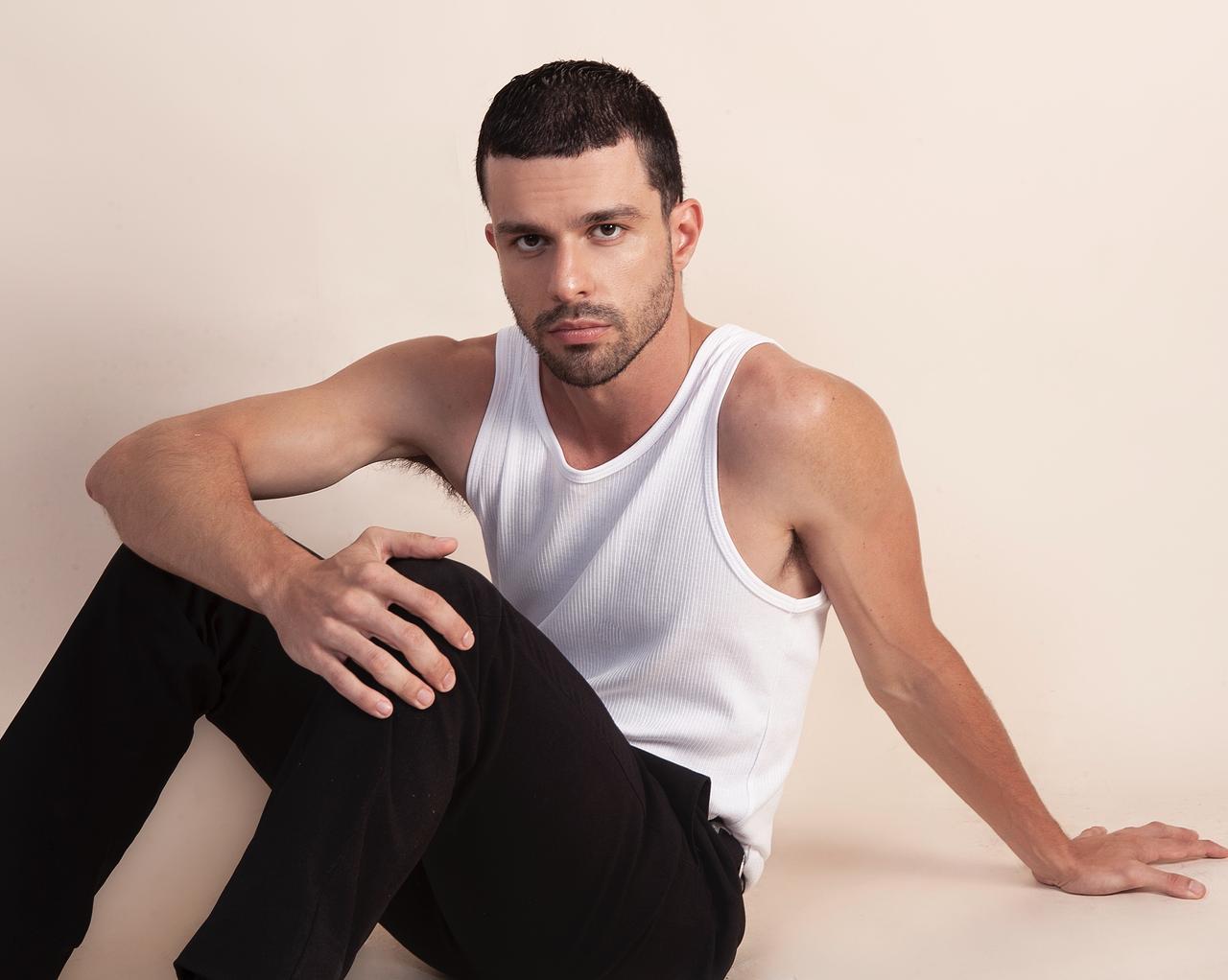Between two simultaneous offers, actor Lucas Miranda chose the path that would reconnect him with his roots and turned down a role on another network to star as Pedro in Vermelho Sangue, Globoplay’s new fantasy thriller series, which premiered on October 2nd. Written by Rosane Svartman—author of hits like Vai na Fé and Totalmente Demais—the production marks Lucas’s debut on Globo’s streaming service and presents a plot that blends reality and the supernatural, with vampires, werewolves, and human dramas set in the interior of the country.
A native of Minas Gerais, Lucas sees the role as a reconnection with his roots—both through his accent and the series’ setting—and celebrates the opportunity to join a star-studded cast that includes Rodrigo Lombardi, Alanis Guillen, and Milhem Cortaz. In addition to acting, the artist remains involved in music and theater, balancing recording with the release of his EP Força Invisível and the children’s show Do Começo ao Fim, in Rio de Janeiro.
You mentioned having to “relearn how to speak like you did in childhood.” What was that process like, rediscovering your own accent—something you were previously asked to hide—and now transforming it into a tool for artistic expression?
Yes, I had to relearn how to speak like I did as a child. This process of rediscovering my accent was a delight, very unique—a process I’d never done before. In this process of rediscovery, I traveled, returned to my hometown, Oberlândia, talked to my grandparents and friends, and really turned on my listening, my awareness, to notice how the people in my city speak—the expressions, the slang, the melodies of speech.
Often this is automatic, but when we’re working on a project like this, our perception becomes more acute. That’s what I tried to do when developing the character Pedro, and it was very important to me. I think it’s essential for our audiovisual industry to tell these stories and allow Brazil to also be heard through its rural accent, the accent of the backlands, the Brazilian savannah. It was a lot of fun, and I felt very happy rediscovering my accent.
Between two important proposals, you chose the one that reconnected you with your roots. What did this decision teach you about purpose and belonging within your artistic career?
This decision to accept a project that reconnected me with my roots, over another project that was also very relevant to my career, came from the heart. I chose Blood Red because I felt it was more aligned with my truth and with what I want to represent in my career—my message and the place I come from.
I believe that when we connect with our own roots, we can better communicate with the world and get closer to our goals and life purposes. Since I was little, I’ve always dreamed of traveling around Brazil and the world, filming, telling stories, and learning.
This character development was incredibly rewarding, precisely because it took me out of my comfort zone. I enjoy these challenges—and this one, in particular, was a return to my roots, to my essence. Adulthood often distances us from this, especially when we leave our hometowns and move to big cities, as was my case. So, this return was crucial and very important for me, both personally and professionally.

“Blood Red” blends suspense and fantasy in a rural setting, something still rare in Brazilian audiovisual media. What was it like for you to play a character within this mystical universe, yet with such a down-to-earth Brazilian touch?
Playing Pedro, who is immersed in this mystical universe yet leads a peaceful life, was a wonderful and intriguing challenge. Pedro embodies the everyday life of Minas Gerais, and our core character in the series grounded this supernatural universe—which is crucial in dramaturgy, because it connects with the audience and keeps the story from becoming inaccessible.
When we show local daily life—the Minas Gerais coffee, the cachaça, the straw cigarette, the maned wolf, an icon of the Cerrado—we connect with the audience. Otherwise, it could become too “Hollywood,” like stories about vampires and werewolves.
Bringing in these elements of Brazilian culture makes everything more original and welcoming. Being a part of this was a huge joy for me.
You mentioned Rodrigo Lombardi’s advice to “start from scratch” with each experience. How has this insight influenced the way you approach your own creative processes?
My creative process is very much from the outside in. First, I think about how the character walks, their body, their gaze, their mannerisms, how they approach life, and the environment they’re in. Only then do I begin to explore the inner layers—what they feel, their fears, dreams, and goals.
I really enjoy working this way, and a piece of advice I heard from Rodrigo Lombardi on set stuck with me: “Before you go on set, forget about the techniques. Leave everything aside, open your ears, and have fun.”
This gave me more confidence. It’s natural to be nervous on set, especially in your first professional experience—there are so many people, so much pressure. But it’s a paradox: when acting, you have to abandon your rationality and let your inner child take over. Lombardi’s advice was truly special.

Besides your voice and mind, your body was also transformed for the role. What impacted you most physically or emotionally during this process of “shaping” yourself to be Pedro?
It may seem silly, but I believe it has a big impact. Besides the action scenes, which were physically demanding—strong sun, dry savanna climate—what had the biggest impact on me was simply eating Minas Gerais food again, spending 40 days in Minas Gerais, drinking a little cachaça…
Pedro liked to smoke a straw cigarette, and all of this greatly influenced the character’s experience. Eating a Minas Gerais feijoada, for example, changes the way the body behaves—and this is reflected in the scene. This kind of experience brings veracity and credibility to the portrayed universe.
Interestingly, I realize today that much of what I personally experienced back then was reflected in the character. Romantic frustrations, rejections, disappointments—feelings that Pedro also experienced.
At the time, I wasn’t aware of it, but seeing it on screen, I realize how it gave a very real and interesting layer to the character. I think audiences, especially those who know me, will notice that.
Your EP Invisible Force addresses self-esteem, spirituality, and overcoming challenges. Do these themes also influence you as an actor? Is there a point where music and acting intersect within you?
Themes like self-esteem, spirituality, and overcoming challenges influence me not only as an actor, but also as a human being. These are topics I’m always investigating, about which I enjoy speaking, writing, and creating.
Recently, an interviewer asked me what I love more—music or acting—and I replied that it would be like asking a mother of two which she loves more. It’s impossible to choose, because both are parts of my being and complement each other.
I believe that a good actor is built through the books he reads, the conversations he has, the places he visits, the smells, flavors, encounters and goodbyes.
I remake and reinvent myself every day as an actor. The better I am as a person, singer, and performer, the better I become as an artist—plural and multifaceted, as I consider myself.

Going from a dark universe like Blood Red to children’s theater in From Beginning to End is quite a shift. What lessons did this contrast teach you about the power of art for different audiences?
I’m definitely experiencing a major turning point in my life. I went from a dark series with vampires and werewolves to a children’s play and now I’m heading to a comedy.
This is a true gift for any artist, because moving through different styles enhances the work and expands the creative tools.
Art has this power—laughter transforms as much as fear. Each audience is touched differently, and both provoke reflection.
The children’s show, for example, helped me rediscover my inner child. Just like in comedy, the focus isn’t on “being funny,” but on bringing the truth of life to life. A good comedy grows out of a good drama.
I’m living a very special moment: returning to the theater, making my streaming debut, welcoming new fans, and seeing people discover my work. I hope this opens many doors and allows more people to follow this new phase.
You said you want to show “where you came from, your message, and your essence.” If you could summarize that essence in one word or feeling, what would it be—and how do you hope the audience perceives it in your future stories?
Yes, I really want to show where I came from, my message and my essence.
If I could sum it up in three words, they would be: humility, simplicity and courage.
These are the values I learned and carry with me — being honest, working without stepping on anyone, doing the right thing for the right reason, and waiting patiently for things to happen.
The essence of my work is about respect, love, and connection with others, the environment, animals, and people.
I am a plural artist, raised in the midst of music and artistic diversity, and I want this to shine through in what I do.
I want people to see me as honest, humble, and passionate about working and telling stories—both Brazilian and from around the world. I’ve had the privilege of visiting many countries, and each experience has shaped who I am today.

Follow Lucas Miranda on Instagram





